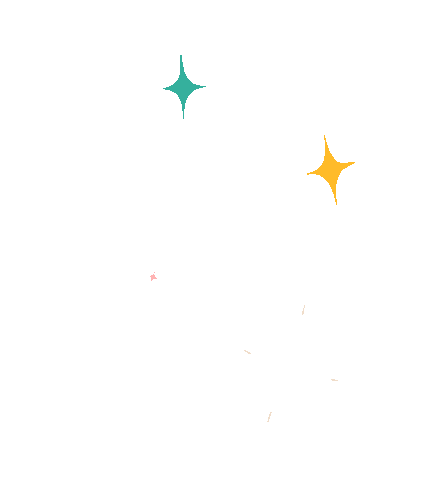


WINTER 2020 VOL. 1 ISSUE 1 | NOV 6, 2020

WELCOME TO DIS-ORIENT
We know you’ve had a tough week. A red and blue map confirming the violent divisiveness that we, the marginalized, have known for generations. And yet—it is still painful to see. Still painful to know that anything that categorizes us as ‘other’ is still a matter of life or death. But we must not forget that our otherness holds a resilient magic: the ability to imagine and create a more beautiful future.
And so, despite the darkness and uncertainty of the times, Queer Asian Social Club perseveres in reminding our community of the dreams that have been carried on our ancestors' backs—the dreams we have always been destined to conjure into reality. This is the work we have always done and will always continue to do. Today, we proudly present to you DIS-ORIENT—a new weekly webzine that will feature stories and perspectives from yours truly, ~the Queer Asian community.~ This is the debut issue.
For our inaugural 8-week season we will be exploring the theme:
THE REVOLUTION IS US


In this season, we will be sharing stories, perspectives, and visual art that reflect where we come from, who we are, and what we are in the process of becoming. As marginalized folx, reclaiming our joy, our stories, and ourselves in the loving arms of community has never been more important: your healing and your ability to fall in love with yourself is the revolution we've all been waiting for. And you are not alone on this journey.
This issue features an interview with actress/artist/activist POPPY LIU, the art of NICOLE KIM, poetry by DANNY CHIN, and a tarot pull and ongoing/post-election-week ritual by IRENE YOUNG. DIS-ORIENT is our collective dream for the future—the one we are actively in the process of creating. Your hopes, heartbreaks, and imperfections are all welcome here, but please, leave your shoes at the door! We hope you find what you didn't yet know you were looking for.

In conversation with Jamie Lew
Club Member
Of the Month:
POPPY LIU


"Am I falling in love with Poppy...?"




I found myself wondering during our interview, in the moment between her response and my next question. It’s hard not to. No matter the medium, Poppy’s work reflects upon her experience as a Queer, Chinese American actress with a sharp-witted confidence and easy grace that is as galvanizing as it is mesmerizing. She is a trail-blazer for a new generation of Queer Asian representation: she’s a series regular on NBC’s Sunnyside, has worked alongside legends such as Margaret Cho, Lucy Liu, and Kal Penn, and has committed to using her artistry for activism and radical social change. You stan, I stan, we all stan for Poppy.
Over the course of our video chat, Poppy and I time traveled through shared histories to ponder an array of distinctly Queer-Asian questions: Why is diverse representation important? What did our queer ancestors long for? Where is home for children of migrants? Understanding Poppy somehow became a lens through which I could better understand myself. Poppy’s untangling of her own history is a gift not only for herself, but for everyone in her community—by witnessing the liberation of Poppy, we can better imagine the liberation of ourselves. After our conversation, I could confirm two things:
1. I was definitely falling in love with Poppy
2. Unequivocally, Poppy IS the revolution
JAMIE:



We are communicating through the ether… a secret, Queer Asian brainwave.


I want the queer future that we dream of to be something that is on everyone's collective consciousness.

Time traveling is a super power that a lot of us have as migrant kids. The work of understanding ourselves requires a lot of time traveling. The better I get at time traveling, the better I get at knowing who I am.


What is the difference between longing for Homeland and longing for Love?
You describe yourself as “a bilingual, classically trained, first generation Chinese American actress who brings her identity as a migrant queer person of the API diaspora into art and entertainment.” What do you believe is the power of art and entertainment?
POPPY:
I think ‘art’ and ‘entertainment’ exist in a Venn diagram. You have 'art' and you have ‘entertainment,' and then there's the space where they overlap. I am interested in this place where they merge. I create art to understand myself, process the world, collaborate with my communities, and connect to a higher purpose. Until pretty recently, my work as an artist didn't cross over into 'entertainment.' I was always confused about why entertainment was called 'entertainment.' If finding your higher self and connecting to ancestral healing is entertaining… then yeah sure, this is 'entertainment.'
I think the value of entertainment is within the massive audience and the ability to share stories that shift the cultural needle. My friends and peers are telling stories and creating art that is rooted in the reformation and rebuilding of our connective tissue. I want that work to be celebrated and to reach as many people as possible. I want the queer future that we dream of to be something that is on everyone's collective consciousness.
I think 'entertainment' is the Trojan horse of getting ‘art’ into the world. People consume entertainment like, "Oh, let me just chill and watch this sitcom," but you're really transforming their perspectives of something they didn’t previously understand.
I don't think the entertainment industry knows what we're bringing inside of our Trojan horses, but ~we know.~
I love that. You play Mei Lin on NBC's Sunnyside opposite Joel Kim Booster’s character Jun Ho—two of only a handful of not just Asian, but Queer Asian characters in the ~entire history of American mainstream media.~ What does this mean to you?
What's interesting is that they didn't write us as queer characters, but with Joel and I being so gay in our real lives, it made the characters queer. Joel has said before that our characters have queer moments that may not be clocked by straight audiences at all—we are communicating through the ether… a secret, queer Asian brainwave. A running joke throughout shooting was that we would be wildly, inappropriately erotic with each other, even though our characters are “twin half-siblings”... which feels so specifically queer and Asian. I love the ambiguity. Are they siblings? Are they lovers? Are they cousins? There's a very, very specific audience of people who understand that—the erotic queer energy that exists in our relationships with our chosen fam and the people we date. All these people are connected into our extended family—everybody's a cousin!
It's so true.
Oh my God, I met Lucy Liu last year. She was directing an episode of Law & Order that I guest starred in. When we met each other on set we both screamed—or maybe I screamed and she was more chill—and we hugged and then she immediately started speaking to me in Mandarin. The entire film crew around us was asking, “Your last names are both Liu, are you related? Are you siblings?” That just made me think of the family thing—we're cousins. Lucy and I have the same last name! So we're definitely cousins.
That goes back to the topic of representation, because Lucy Liu is the OG. I think every femme, East Asian American girl growing up in the 90s got feedback from the world that was related to Lucy Liu. At the time (in my state of white-idolization brainwash) I remember I would react defensively. “I'm not Lucy Liu!” But in retrospect, I'm like, “Damn, Lucy is so badass and so hot.” Who am I to deny myself of association with Lucy?
I got that too. I think it would have felt different if there had been a long list of Asian femmes to look up to, but it was just the one, you know? And how is that one person supposed to represent all of us? Up until very recently, Lucy was still one of the only names that existed. But now there are so many of us coming up together, and the next generation is coming up quicker and quicker too. The point of entry is less daunting, but I have a lot of love for our predecessors who really went through it.
Can you tell me more about being a member of the Board of Directors for SisterSong Women of Color Reproductive Justice Collective and your campaign, “Asians 4 Black Births”?
The first film work I ever did was an indie short about my abortion story called Names of Women, which I ended up touring on the Bible Belt. I met my friend Park Cannon at a screening of my film. Park is one of the co-chairs of the SisterSong board and last spring, she invited me to join the Board of Directors. I had studied their organization in college—the pillars of their values and how they work as an organization has been a lighthouse for so much of not only my own activism, but also the activism of a lot of the organizations that I care a lot about. They've been a beacon for women of color-led movement-building work.
When COVID started, SisterSong created a Birth Justice Care Fund to direct money towards new Black/POC mamas and caregivers in Georgia. I wanted to figure out a way to support this with a fundraiser. I was staying with my mom at that time, and she was having these tangential conversations in her WeChat auntie communities, many of which are very conservative. I realized that because of the circumstances of their immigrations, many of these aunties had a finite understanding of the race relations of this country, which made them primary targets for drinking the Kool-aid of anti-blackness. Then it occurred to me that we, as Asian Americans, have access to mobilizing a very large population of people that only we have access to. So that’s when Asians 4 Black Births was born. I reached out to my friend, Deepika Srivastava, to collaborate in launching a campaign. We planned on raising $10,000 over three months, but we reached that goal in just over a week. Right now, we are figuring out Phase 2 and Phase 3 to continue Asians 4 Black Births not just as a fundraiser, but also as an advocacy and education piece as well.
I think our disconnect from our own histories really prevents us from understanding the connection between anti-blackness and the Asian American experience, but I think the first gatekeeper of this information is actually our parents, who never seem to want to talk about their past. Have you always been able to have conversations like this with your mom?
I keep trying to understand my parents' story more because I feel it will help me understand myself more. My parents don’t like talking about narratives that portray them as having suffered, but I think that's part of their migrant, survivor mentality. Every now and then, they’ll let something slip through the cracks—randomly and casually—but there are a lot of stories that I haven’t been able to piece together.
Something that's been really helpful for me is reading books written by Chinese American women who grew up at the same time my parents did, during the Cultural Revolution in China. These books are like a window into my parents’ souls—they explained so much. I didn’t understand why I had been held onto so tightly as a kid… until I realized how much had been lost. We clung to each other as a family unit. Survivorship is something that I couldn’t understand when I was younger.
I feel like part of my healing journey is time traveling to understand how much fear, hope, and desire my parents had when they immigrated. I imagine my mom getting her master's degree at night while working at fast food restaurants and hotels during the day. I imagine my dad getting the same PhD that he had already gotten in China, and still having to write letters back home to say, “Mom and dad, everything in America is so great. I can't wait to bring you out here and show you the great life that we have.”
Time traveling is a super power that a lot of us have as migrant kids. The work of understanding ourselves requires a lot of time traveling. The better I get at time traveling, the better I get at knowing who I am.
I cannot imagine uprooting my life to a place across the ocean where I don't speak the language—that’s some true warrior-rebel shit. It's funny for us, as queer people who so deeply fear disappointing our parents, to look at what our parents did as young people.
Our parents were radical in what they were doing… it’s something that connects us to them. They ventured into unknown territory and their migration was their desire for a better life for themselves and their future generations. Similarly, I feel like queerness is not only a part of who I am, but also a dream that I carry for a better future for the generations that come after me. It’s a dream that my parents and I share.
I used to think queerness didn’t exist in my lineage before me—but when I look at Asian history now, all I see is queerness.
Yes! Our histories and lineages are very gay! Two or three summers ago was a very painful time for my parents and their acceptance of my queerness. My mom was trying to talk me out of being queer, but she ended up admitting, “Look… who hasn't been attracted to a woman? But did I pursue it? No! I just kept it in my heart.” [Laughs] She even had this whole theory that everyone is 30% gay.
Wait, that’s a pretty high percent, mom!
I know! But when she said, “I think everyone’s kind of gay,” I was like, oh my God, we have some common language!
I think it’s monumental for us to be openly queer in our lifetimes now, because it brings up the feelings of all of our queer ancestors who had no other option but to choose heteronormative relationships. I always feel the presence of my ancestors remarking, “I am so happy for you, but I'm also low-key jealous.”
Oh, that was so beautifully put, Jamie. All of our ancestors were queer, but could only express it in longing.
This transitions us to a question I had about a caption you had written for your beautiful “Notes From the Diaspora” series. You wrote,
“What is the difference between longing for Homeland and longing for Love? I romanticize the idea of Homeland because the distance means I get to fill in the blanks with fantasy. The memory is sweet while the reality is complex. The Homeland of my dreams is a place that does not actually exist. But once in a while, is it so terrible to be in love with a perfect fantasy? After all, what is more Chinese than loving something you cannot have."
Can you expand upon the line, “What is more Chinese than loving something you cannot have”?

Through loving each other we now understand what ‘home’ is: a migratory seed that we can plant wherever we go.

I love forbidden love. Everything forbidden is so fun. I also really love inappropriately using the phrase ‘edge play’ for everything—it’s my fetish. [Laughs] Everything is edge play, everything is forbidden flirtation, everything is just so cuspy. The more unattainable something is, the more I will long for it.
I wonder why I’m that way sometimes. Why do I want both extremes of ‘love as codependency’ and ‘love as perpetual longing?’ I wonder if our parents, elders, and ancestors romanticized the things they could not have because there was just so much that they couldn’t have—the queer love that they longed for, conversations they wished they could have, belonging without seeming weak, help and support for their mental health, the dreams they had but couldn’t pursue because of filial piety… I wonder if romanticizing the things they could not have was part of their reclamation—at least they could have the longing for what they couldn’t have. The longing became their destination.
Oh my God… I didn’t realize that this thing I do where I love the fantasy of love and yet sabotage myself from having love in reality could actually be a collective trait we have inherited from our ancestors?! But now, I’m thinking about the trauma that our ancestors have gone through—bombings, invasions, and warfare in the place that they called home, the place that they once felt love and safety. If you had survived that trauma, home-love-safety became the most dangerous place to return to, because home-love-safety was the place where you had laid your head down to rest, where you had let yourself be vulnerable… and then you got bombed and invaded in that place. You’re never going to want to return back there, back to home, love, and safety.
Why be vulnerable? Why love when your only experience of love is it being taken away and replaced with heartbreak? My friend Jess and I talk about how our parents’ relationships seem so utilitarian. For them, love and marriage is about having another bunkie with them making sure that there's enough food. But actually, us being able to love in the way that we do is our parents’ dream for us.
The irony of it all is that our parents’ utilitarian approach to love and marriage—if we’re lucky—provided the safety for us to imagine love as romance again. It was only in the house that they built that these dreams became possible again.
This is why it feels so sad when our parents can’t understand or acknowledge the kind of romantic love we are able to have now. I love like this because of the house you built, and I thank you for that. Mom and dad, can you just trust that there is a future that I can see, that maybe you can't yet? You must have asked your parents to trust you when you moved here. Can you also trust that I'm not making the biggest mistake ever by traveling into the unknown?
I want to circle back to the concept of ‘Homeland.’ I think as queer and migrant people, we constantly fear that fully embracing our identities means that we need to divorce ourselves from the home we once knew—the place where we felt some sort of belonging may cease to exist. Is there a place that exists between “longing for Homeland” and the home that you have been able to build now? What does this place look like?
As a migrant person, I always felt like the concept of home is really mobile, both literally and figuratively. By the time I turned 18, I had lived in 13 different houses. I think after the first big migration from China to the states, my parents just couldn't stop migrating; they had uprooted themselves to reset here, but the uprooting became their energetic norm.
I’m only now realizing how queer it is to be obsessed with creating home for myself and other people. In the universe I choose to live in, ‘queerness’ is home. As a verb, ‘queerness’ is the act of creating homes… that’s the work that we do with and for each other. The home I share with my friends in New York is a really beautiful example of what that has felt like in practice. We create a gigantic web of chosen family that continually shows up for and catches each other. Whenever we can’t hold ourselves up, there’s a web that can hold us. This act of group holding is home. Home is the sense of safety, security, and stability that we can provide for each other. It's accountability. It’s knowing that I'm going to make sure that you're not going to fall and get hurt, and knowing that you’re doing that for me, too. Through loving each other we now understand what ‘home’ is: a migratory seed that we can plant wherever we go.

For more of Poppy, follow @poppyrepublic
This interview has been edited for length & clarity by Jamie Lew @thejamielew
With the generous & wise help of Editor Yimu Xue @yeemz
IMAGE CREDITS & DESCRIPTIONS
1. POPPY, THE VTMS
Poppy raises an arm across her face as she leans to the side with her eyes closed. She is in front of wallpaper patterned with cranes and flowers and is surrounded by plants.
2. PHOTO FROM POPPY'S "NOTES FROM THE DIASPORA" SERIES
"1995, 小猪 park in St. Paul, Minnesota + flowering hibiscus bush in mom’s garden."
3. SUNNYSIDE GIF, NBC
An animated GIF of Poppy Liu and Joel Kim Booster from the show Sunnyside. Poppy is saying, "I. Dont. Know. Her."
4. SUNNYSIDE GIF, NBC
An animated GIF of Poppy Liu and Joel Kim Booster from the show Sunnyside. Poppy and Joel are both shaking their heads disapprovingly.
5. SUNNYSIDE STILL, NBC
A scene from the show Sunnyside, Kal Penn, Joel Kim Booster, and Poppy Liu.
6. PHOTO FROM POPPY'S "NOTES FROM THE DIASPORA" SERIES
"1991, Xi’An YeYuan University with mom and dad + loquat tree in mom’s garden."
7. PHOTO FROM POPPY'S "NOTES FROM THE DIASPORA" SERIES
"1992, 西安交通大学 Xi’An JiaoTong University + peach colored rose that grew under the hibiscus bush."
8. SUNNYSIDE GIF, NBC
An animated GIF of Poppy Liu. Poppy blinks coyly.
9. POPPY, THE VTMS
Poppy's face is half covered by a pink sleeve. She is in front of wallpaper patterned with cranes and flowers and is surrounded by plants.

ART BY NICOLE KIM




Hello! I'm Nicole, a proud San Francisco native, child of Asian immigrants, witch, dyke. By day, I manage digital design and push pixels. All other times, I take photos, make "art", write stories, frolic with dogs, tend garden, and engage with community and social issues. I also love to dream up new worlds far more colorful and less basic than the current one we find ourselves in.
"
"
For more of Nicole, follow on Instagram @cheddarbunnie
"SOMETHING FOR THE PATRAIRCHY", animated illustratrion by Nicole Kim
Illustrated hands holding up a middle finger float diagonally, in chasing rainbow hues.
Quarantine Rainbow
Home-O

A photo collage of all the rainbow colors of items found in the
artist's home during the first few weeks of Shelter In Place lockdown.
BY NICOLE KIM



the suburbs
by danny chin
They ask, do you gravitate
more to your Asian side?
As if I am not a prism,
faceted, shining, refracting.
As if gravity is not a
reciprocal force:
a pull of celestial bodies
exerted mutually
is not a directional force:
a storm drain’s pull
or a wave’s push
towards a sandy shore.
They ask,
so that they do not have to answer.
DANNY CHIN
is a multiracial queer Asian American. Danny’s writing explores how multiracial identity and queerness often inform each other. His work in education focuses on identity, equity, and social justice. He believes we do our best learning when we can be our full, complicated selves. He lives in Maine with his partner and their cat.
Follow @djchin12

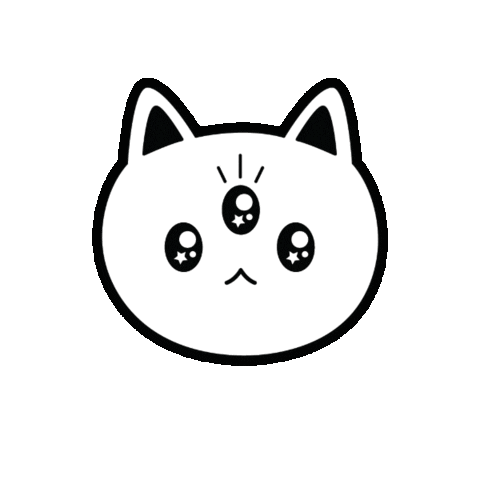

Queer Magick
with Irene Young




IRENE YOUNG
Irene Young is a queer, Chinese-American daughter of immigrants. She is a professional TV/Film Editor who also studies Tarot and believes in Magick. Follow @her.magick
CARDS OF THE WEEK
11.6.20 - 11.12.20
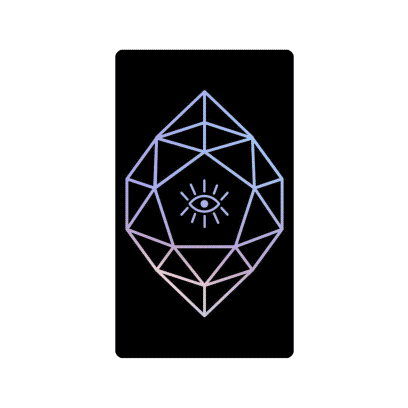




There is a grace to this card. Often, people associate strength with physicality or brute force. But notice how the woman depicted has tamed the lion, not through force, but through trust, mutual understanding, and dare I say, love. This card reminds us that true strength is inner calm and inner knowing; and that courageousness can be in the form of thought, as well as action.
Strength

The Wildling, The Creator,
& Manifest
are all working in tandem. The Wildling returns to their most basic natural instincts—shedding the thoughts and voices of others, to truly connect with their own. The Creator is bursting with raw energy that wishes to be molded and materialized. Manifest reminds us that our power to realize our dreams is especially potent.


The Interpretation




With so much uncertainty surrounding the U.S. Presidential Election this week, you are being challenged to find the strength and grace to face each day as it comes. Allow yourself some relief, even celebration, that Biden is poised to win. But know that there will be new obstacles you must prepare for as well. As disheartening as it is to see that Trump’s support actually grew this election year, we must carry on. Not in fear of what he and his supporters may do to us, but instead: with great inspiration and enthusiasm for what we will do for ourselves.
This week’s collective message is to remember that your work is not done. Although a Biden victory is what many of us have been hoping for, the work does not end with 270 electoral votes. There is a persisting darkness in our country, as evidenced by just how close this presidential race has been, as well as the losses we’ve endured at local and state government levels. Do not let any “setbacks” discourage you, but rather, let them impassion you to action. Biden’s win will be an important victory for many, yes, but it will only be a victory of the most recent battle and not the entire war. The truth is, there is so much we must continue to fight for. A peaceful and uncontested transition of power is just the tip of the iceberg. Today, the cards ask: How do you wish to contribute to the fight?
You are The Wildling, You are The Creator, your will and your power to Manifest is potent at this time. With strength, grace, and courageousness, you are being asked to look within. To shed the thoughts and voices of others, and ask your true self what it is that YOU can do now? What can you create, manifest, and bring forth? How can you be heard, seen, and of service in the battles ahead? These cards have appeared to empower you.

Tea Ritual

For the Revolution

BY IRENE YOUNG

Cast your circle and call in quarters (if that’s how you work, otherwise: find a quiet, clean space that you have designated for the moment to be your work area). *It’s important to carve out space when performing a ritual, even if it’s only temporary space, because you want to set an intention that this is where you will do magickal work.* If you work with your guides, ancestors, etc.—you may call them in now as well, but of course, this is a personal preference. Some people like to call themselves in—as in, call themself home—as part of the ritual.
Prepare a cup of tea of your choice in your favorite mug (you can do this outside of the circle and then bring it in if you need to). Perhaps lavender tea for peaceful clarity or rose tea for heart healing and self-love vibes. Add a pinch of cinnamon for its fiery, road-opening qualities. Add some milk and honey to bring gentleness to this practice. But wait to stir it.
Sit comfortably in your circle, taking the cup into both hands. Close your eyes and take three deep breaths to ground yourself.
Placing the spoon at 12 o’clock in the cup, hold it there whilst reciting these words:
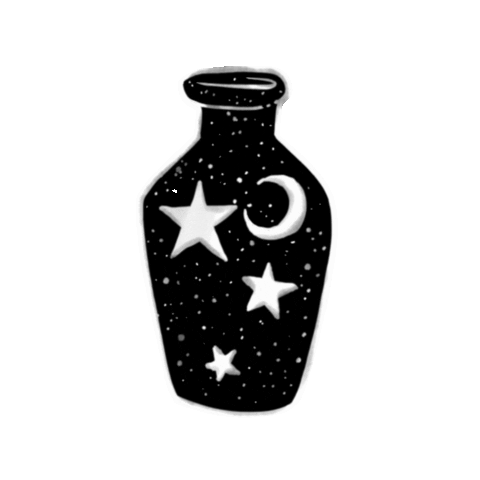

I am the Wildling
My strength is my grace
I am The Creator
My strength is my grace
I am Manifest
My strength is my grace
*Repeat as many times as it feels right for you.
Now stir in a clockwise motion, completing a full circle—once, twice, three times. Set the spoon aside. Close your eyes and think about who you are as The Wildling, The Creator, and Manifestor. What does your inner knowing tell you? What do you want? How can you achieve it? Remember that you are powerful and strong and capable. If any negative or intrusive thoughts pop up, just acknowledge and then release them, so you can get back to the practice. This ritual is intended to bring you clarity. What are you being called to do? Perhaps write down thoughts as they come, so you can continue to process them later.
Now drink (at your own pace). Let it warm your soul. When you’ve finished the cup, the ritual is complete.
You may now continue to meditate if you’d like, charge your crystals with your new intentions, or anything else you want to do before closing out your ceremony.
Always remember to thank your guides, ancestors, yourself—or whoever you called in. Close the circle, with as simple of intention as, “This Circle is now closed.”

COME AGAIN NEXT TIME
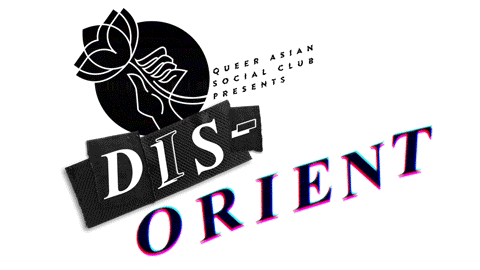
We hope you enjoyed this debut issue of DIS-ORIENT.
Check back next week for the next issue!
Stay alive! Stay safe! Celebrate the victories! We need you! We love you!
Want to submit to next season of DIS-ORIENT?



